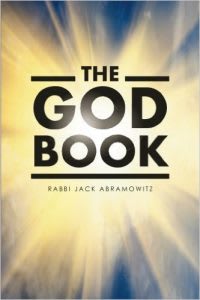2.10. The Order of Providence
Sources refer to the Ramchal's Derech Hashem.
-----------------------------------------
God runs the world in a manner not unlike a human government. The Sages tell us this outright in Talmud Brachos 58a. The spiritual world, like the physical world, includes courts, and there are rules governing them. And, as on Earth, there are higher and lower courts, all deciding matters according to their levels. This is what Daniel was referring to when he said “the matter is decided by supervisors” (Daniel 4:14). [II, 6.1] God manifests in these Heavenly courts and imparts them with an inherent understanding of the matters they are to judge so that their conclusions should be based on the truth. Not only that, God personally directs some of these tribunals, as we see in I Kings 22:19, "I saw God sitting on His throne with the host of Heaven standing to His right and His left." The Sages explain that those on one side represent the defense, while those on the other represent the prosecution (Sanhedrin 38b). All this is done so that every person might be judged accurately.
When a person is judged, arguments are typically presented in one particular way but other potential arguments exist. A deed might appear improper from one perspective but that might not be the case from other perspectives. This is because nothing exists in a vacuum; everything in the world affects and is affected by many other factors. These things can mitigate one's actions. In Heavenly courts, all of these factors are considered, each one presented by a designated representative. After the entire picture has been presented, the case is decided according to absolute truth. Even though God knows all, He allows the prosecution and the defense to present their arguments to the court. [II, 6.2] From this process, it is evident that God does not judge the world according to His knowledge but rather according to the system that He designed.
A case cannot be judged in one of these Heavenly courts until all of the "angels" necessary to testify have arrived. Each one of them testifies according to what it has seen as well as what has been revealed to it. A case is not decided until all the relevant testimonies have been delivered. As we have said, God doesn't require this to gain information as He knows all, but this is the process as He decided to implement it.
This system is referenced a number of times in scripture. Examples include "God descended to see" (Genesis 11:5, referring to the Tower of Babel), "the sons of God (meaning angels) arrived to testify" (Job 1:6), and "God's eyes fly throughout the land" (Zechariah 4:10), among others. All such verses address God's system of justice. His "eyes" are the angels assigned to supervise what occurs throughout the world. When God reveals Himself to judge a case, He is said to "descend to see" as He did regarding the Tower.
The similarities between God's system and a human justice system are limited to the structure. Humans can only testify and judge within their limitations; spiritual beings, while also limited, have very different natures and very different constraints. [II, 6.3]
There is a prosecuting attorney called the Satan (literally, "the accuser," pronounced "sah-tahn," not "say-tin"). The Satan is mentioned in the Book of Job, among all the other angels who assembled before God (Job chapter 1). In Judaism, the Satan is not a "devil." He doesn't rule Hell and he doesn't want your soul (nor would he have any use for it!). Rather, his job is to bring cases before the various Heavenly courts. Even the Satan is a manifestation of God's goodness. After all, God knows all, so there would be no reason for Him to delay passing judgment on a person. Nevertheless, He instituted a system in which a person's deeds are not judged until he has been formally charged. Furthermore, the Satan is limited in his ability to carry out his job. For example, the Sages teach that the Satan only has power to accuse at a time when a person is in danger (Talmud Shabbos 32a, et al.); they taught similarly that certain things cause a person’s sins to be recalled (Talmud Brachos 55a). [II, 6.4]
There are also designated times for these courts to meet. For example, there are four times in the year when different things are judged: grain on Passover, fruit on Shavuos, rain on Succos, and mankind on Rosh Hashana (Mishna Rosh Hashana 1:2). There are other rules as well, all of which illustrate God’s goodness to us through this judiciary system. [II, 6.5]
The God Book – now available from OU Press!

